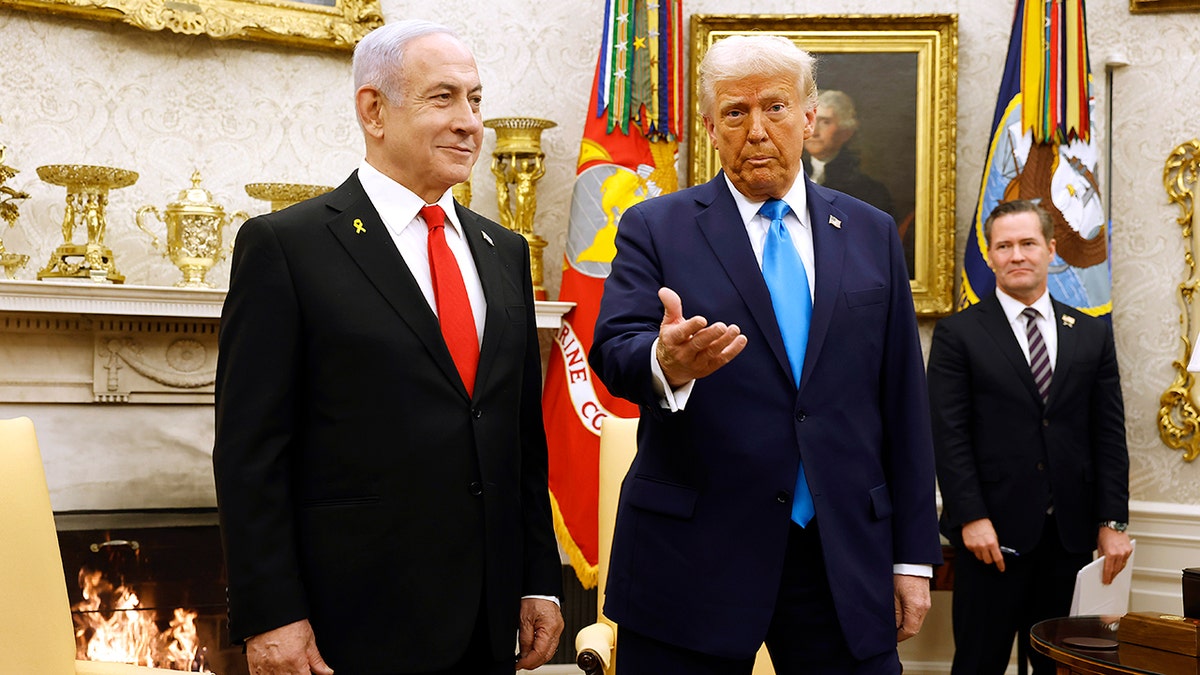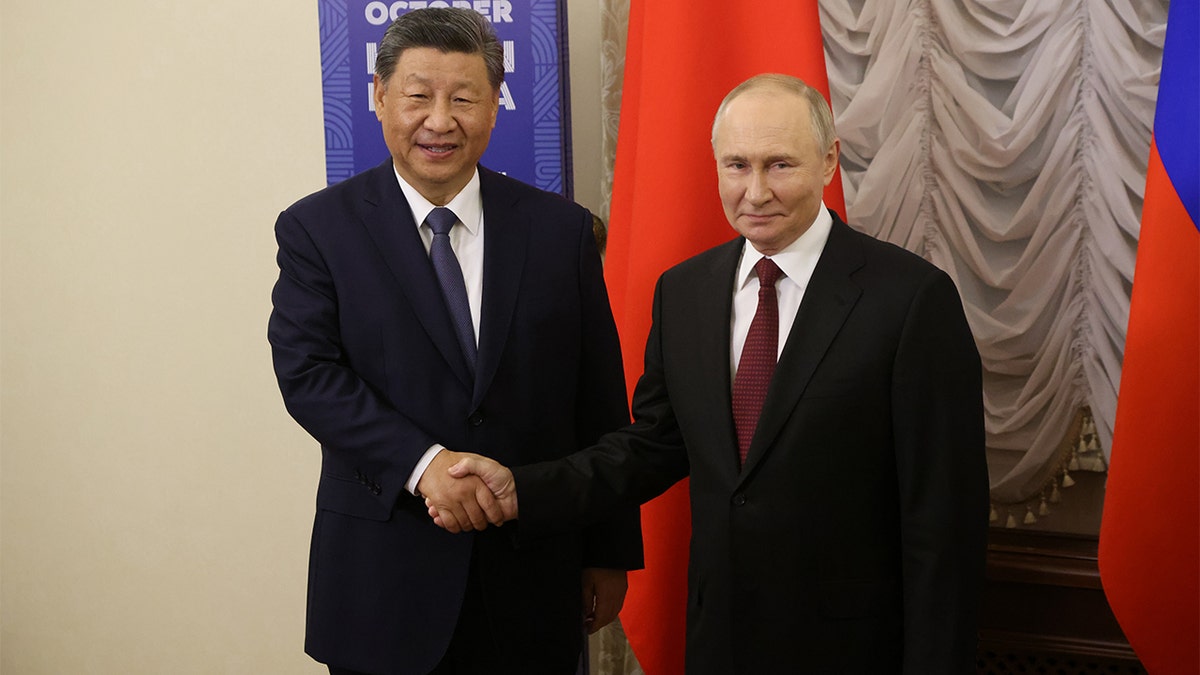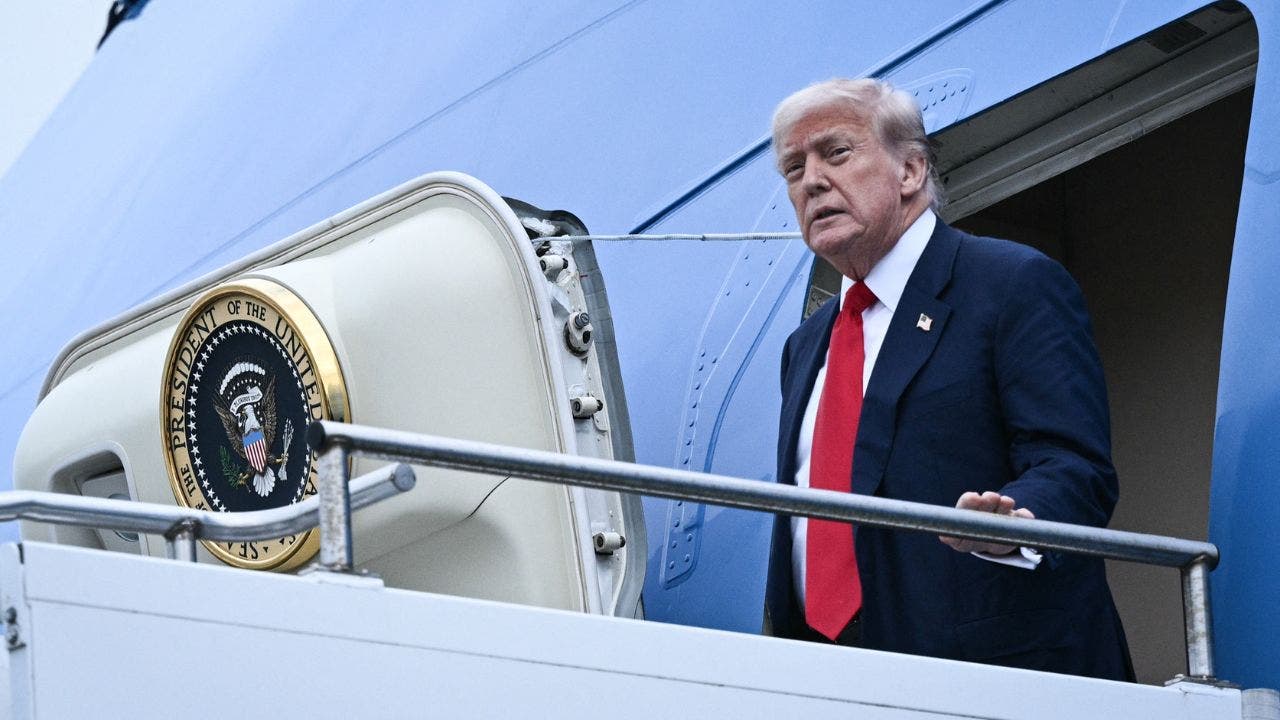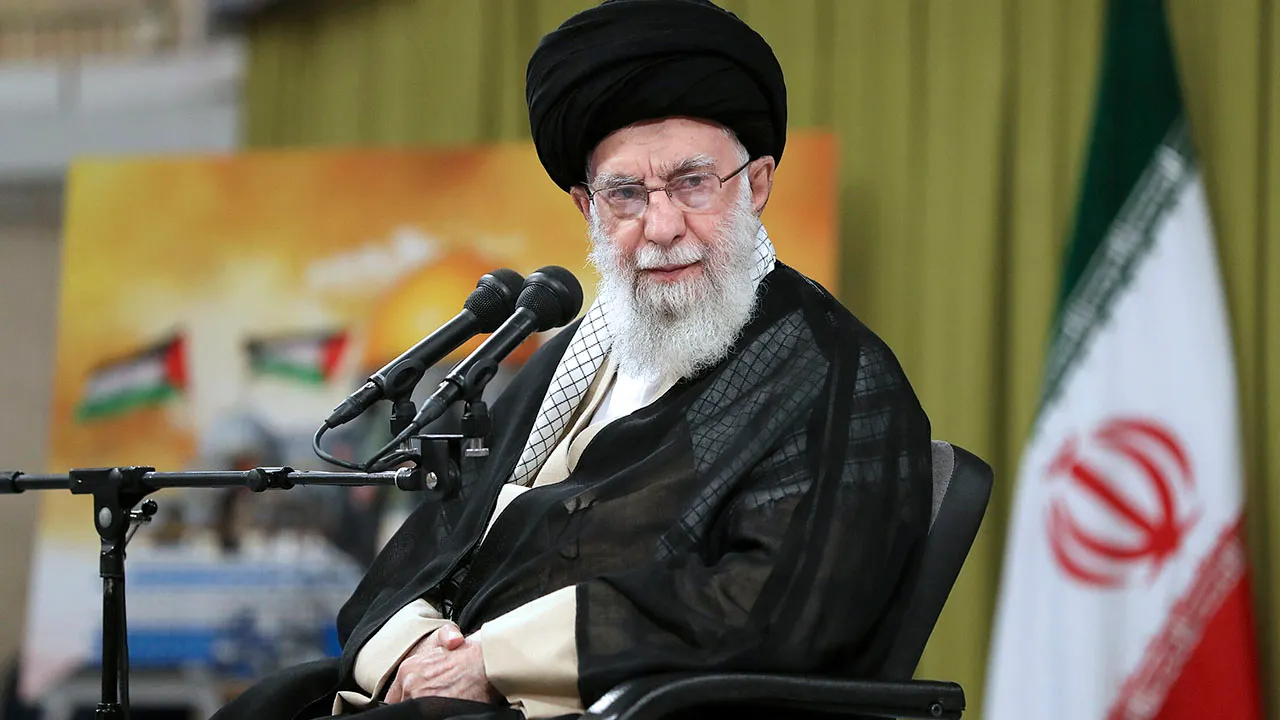NEWYou can now listen to Fox News articles!
In a lengthy and beautifully crafted address on Independence Day, July 4, 1821, then-President John Quincy Adams delivered an extraordinarily detailed and learned lesson on the founding of America. It’s one that still deserves repeated and close reading — though much of it will simply not be understood by most Americans today, for it is dense in references to history no longer taught widely in the United States.
Adams’ most memorable sentences are often quoted:
“[America] has, in the lapse of nearly half a century, without a single exception, respected the independence of other nations while asserting and maintaining her own. She has abstained from interference in the concerns of others, even when the conflict has been for principles to which she clings, as to the last vital drop that visits the heart. She has seen that probably for centuries to come, all the contests of that Aceldama the European world, will be contests of inveterate power, and emerging right. Wherever the standard of freedom and Independence, has been or shall be unfurled, there will her heart, her benedictions and her prayers be. But she goes not abroad, in search of monsters to destroy. She is the well-wisher to the freedom and independence of all. She is the champion and vindicator only of her own. She will recommend the general cause by the countenance of her voice, and the benignant sympathy of her example.”
SUMMIT WITH PUTIN SET TO TOP TRUMP’S AGENDA THIS WEEK AS UKRAINE WAR TAKES CENTER STAGE
The declamation that America “goes not abroad in search of monsters to destroy” is a favorite text of both the pre-World Wars One and Two isolationists in America, but of course both global conflicts reached out and drew the United States into them.
Now, far, far more than in 1917 and 1941, the assumptions of our sixth president simply no longer apply.
There is no longer any “abroad.”
The idea of an “abroad” about which Americans could be either indifferent or at most the subject of a distant approval or remote scorn, is dead.
To repeat: There is no such thing as “abroad.”
Not even remotely.
What remained of the concept after Pearl Harbor was shattered by Sputnik in 1957, and then by successive generations of missile technology. With the rise of hypersonic missiles only fools would believe that there is an “abroad” anywhere on the globe that the United States can disregard.
Beijing’s hypersonic arsenal can reach Washington, D.C. in two hours or less, and that margin is going to shrink rapidly. Russia’s hypersonic missiles can reach the lower 48 even sooner and Alaska in a blink.
IF AMERICA DOESN’T SHAPE THE WORLD, OUR RIVALS WILL
Other nations will inevitably add to the number of potential adversaries that can change the world via hypersonic missilery and wreck enormous, perhaps Republic-ending damage on the country.
Of course, America possesses a “second strike” capability deep under the seas in our Ohio-class submarines, and even an enormous fusillade of thousands of hypersonic missiles would be unlikely to cripple all of our B-2s and B-21s or ever missile silo. The United States would take down with it all of the evil powers that combined to strike it first, just as it did from 1941 to 1945.
But there would be no “Marshall Plan” waiting for anyone or any country on the other side of such an unimaginable catastrophe. Thus it must be deterred. Deterrence is only accomplished by the reality of American military power and the military power of the allies on which it can rely.
To repeat a third time: There is no “abroad.”
TRUMP’S NEW AMERICAN DOCTRINE MEANS PEACE THROUGH STRENGTH HAS RETURNED
This very dangerous word will only grow more so with the years. President Trump’s decision to destroy the Iranian nuclear weapons program alongside Israel’s blows against that fanatical theocracy’s ballistic missile capability shielded the entire world from the most unstable and terror-addicted regime in the world obtaining the ability to threaten all of the West and beyond with Armageddon.
For a time, at least, the precise and purposeful application of American military force to the missile and nuclear arsenal of an enemy on the brink of “breakout” kept the number of nuclear powers stable.
Bravo, President Trump and Prime Minister Benjamin Netanyahu. Whatever criticisms come their way on whatever other subject, the most important mission of their careers is complete. (Though both men may be obliged by the fanatics in Tehran to do it again.)

President Donald Trump and Israeli Prime Minister Benjamin Netanyahu meet at the White House in Washington, D.C., Feb. 4, 2025. (Anna Moneymaker/Getty Images)
The West still has enemies, of course, and the most formidable one is the Chinese Communist Party that dominates the People’s Republic of China, and its ruthless leader, Xi Jinping. Xi and the CCP are followed in second place by Xi’s equally ruthless if not quite as powerful ally in Putin’s Russia, not to mention the unstable nuclear powers of North Korea and Pakistan.
The West’s nuclear arsenal —distributed among our allies Great Britain and France and especially alongside that of Israel and our sometimes friend India— combines with our own prodigious, yet in-need-of-modernization nuclear arsenal to hold the most dangerous enemies at bay.
There are only four actual superpowers in the world —the quartet of nations that can project nuclear power far beyond their borders and which possess intelligence and espionage capabilities that are unmatched except by each other’s capabilities: The United States and Israel on the side of the West and the PRC and Russia on the side of despotism. All others in the “nuclear club” have limitations imposed by their own chaotic domestic politics or lack of deliverable firepower and the will to use it.
That’s national security realism in a nutshell.
5 TERRIFYING FLASHPOINTS THAT COULD IGNITE GLOBAL WAR
When two of the leaders of any of these four nations meet, it is a significant occasion. It is a very good thing that President Trump and Prime Minister Netanyahu have met three times in 2025 and have spoken far more frequently than that.
Xi and Putin have only met in person twice in this year, but their “partnership” is very close even though Xi is to Putin as Trump is to Netanyahu: the senior partners to their powerful but not nearly as powerful junior partners.

Russian President Vladimir Putin and Chinese President Xi Jinping shake hands at the BRICS Summit in Kazan, Tatarstan Republic, Russia. (Photo by Contributor/Getty Images)
This is the basic geopolitical structure of the world and only with that understanding of reality can analysts judge what President Trump gets out of his meeting with the Russian tyrant this week —if anything is even made public afterward. It will take months, if not years, to assess what happens this week.
EU HITS BACK AT TRUMP, ZELENSKYY COMMENTS, NO CONCESSIONS IN UKRAINE BEFORE PUTIN CEASEFIRE AGREEMENT
Putin has attempted to play every American president since Bill Clinton, sometimes successfully, sometimes fooling them only for a time. The temptation to “strike a deal” with Putin is the same as the apple on the forbidden tree in Genesis. That way lies ruin. But sizing up the tree and the apple at close range can have benefits.
President Trump has met with Putin six times prior to this week and has spoken with him often. The real estate developer-turned-television force-turned president has as much of the skills set anyone could have to deal with such a stone-cold killer as Putin. Trump survived not just two assassination attempts in 2024 but years of lawfare preceded by the plots of the permanent left embedded in our vast administrative state during his first term.
Trump is as tough and as resilient as any president since Richard Nixon. There will be no hot mic whisperings of weakness, nor will there be blunt assessments spoken like that of former Vice President Dick Cheney: “[W]hat I see [in Putin is] a KGB colonel.”
Trump is a realist, just like his friend of old from New York in the 1980s and early 1990s, RN. Trump is as tough as W standing in the ruins of the Twin Towers, as tough as the genuine war hero H.W., as tough as Reagan, Ford and Ike.
CLICK HERE FOR MORE FOX NEWS OPINION
If Trump can bring an end to the savagery underway in Ukraine on terms acceptable to President Zelensky, it will be an achievement greater than his interventions to stop the hostilities between India and Pakistan, the Democratic Republic of the Congo and Rwanda, Thailand and Cambodia and last week’s peace agreement between Armenia and Azerbaijan.
Trump’s destruction of the Iranian nuclear program is the biggest building block of his legacy, rivaled only by the Abraham Accords. If he can bring a ceasefire to Central Europe that is acceptable to our allies and the Ukrainian people, it will be the third pillar of his legacy, with the fourth —the rebuilding of the American military into so potent a force that no one, not even China’s Xi, dares to risk a confrontation with us— as his fourth. On top of those four pillars can rest an era of prosperity and renewed American growth and innovation.
CLICK HERE TO GET THE FOX NEWS APP
If anyone is hoping for the president to fail in this endeavor as described, they are not patriots but partisans blind to the realities of the world. There are a lot of those sorts of partisans in the U.S., and increasingly our NATO allies are showing themselves to be unreliable.
Like it or not, the near-term security prospects of the West rest on Trump, and serious people must prefer that to the infirmities of President Biden or the illusions of President Obama.
Trump has confidence in his own abilities and serious analysts of realpolitik should too. At this point, after “Midnight Hammer” and the other ceasefires, after all of the decade since he came down the escalator, there is very good reason to believe he can achieve as much as any other American at the table with Putin. Anyone hoping for his failure should assess their own mental health. It is in the interests of everyone on the planet that knows no “abroads” that stability break out everywhere, beginning in Alaska this week.
CLICK HERE TO READ MORE FROM HUGH HEWITT








